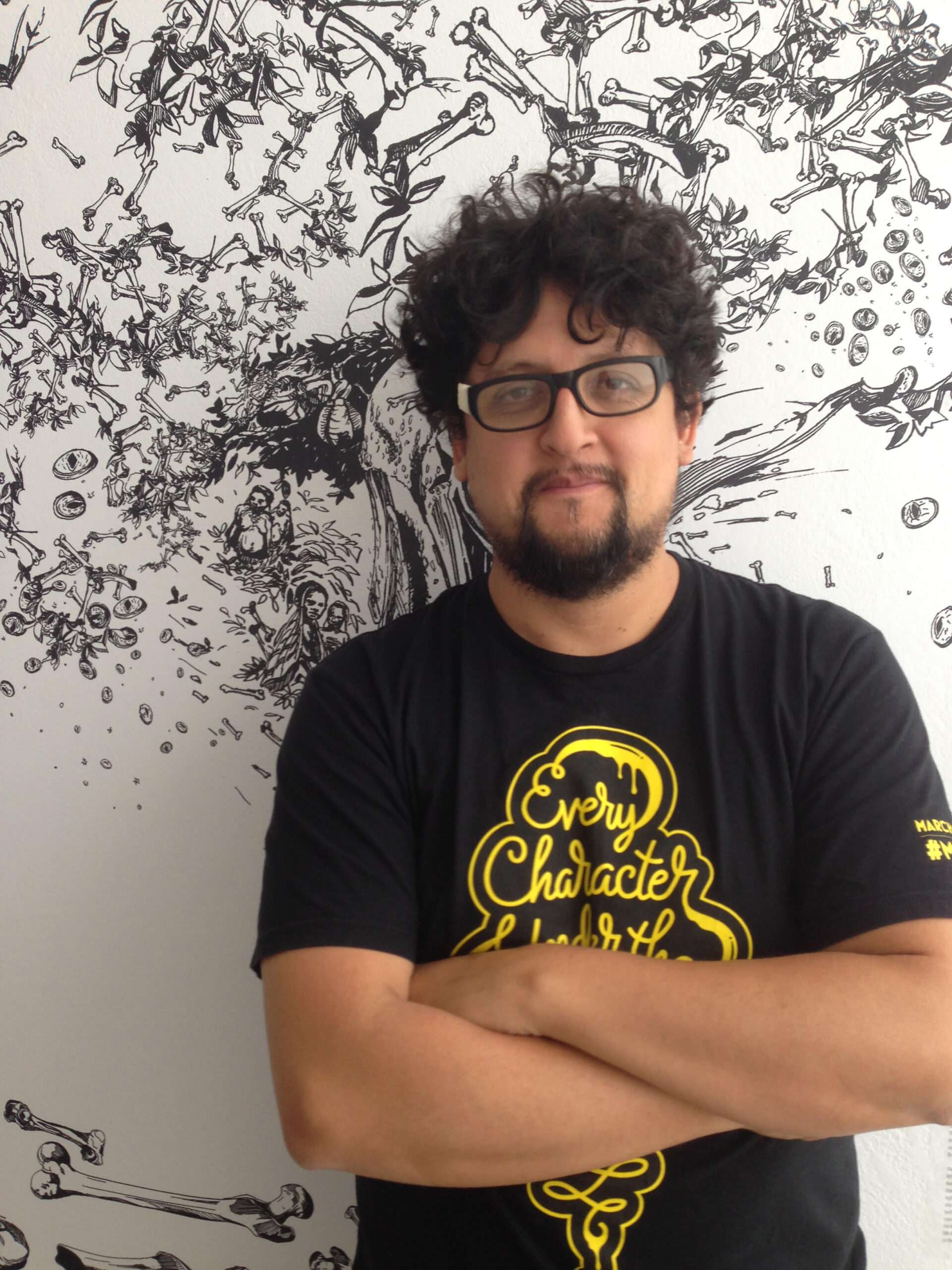“It seems common for parents to scream at their children”. Alejandro Fernández Almendras about ‘My Hero Alexis’

Gert Hermans: When making a film, you want it to be remembered for the right reasons, for being a good movie. With a popular football star like Alexis Sánchez in one of the main roles, there is a risk that the presence of such a persona might put the rest of the story in the shadow. ‘My Hero Alexis’ avoids this trap by telling a vibrant story for boys AND for girls, for soccer fans and for those who are not exactly fond of sports.
Alejandro Fernández Almendras: Tito’s talent for football is as big as his talent for getting in trouble. One day, one of his follies brings him face to face with Alexis Sánchez, Chile’s ultimate football idol and one of the world’s most famous players. An unexpected bond develops and Tito and Alexis will teach each other a few lessons. About life, about friendship, and about the love for football.

Several flashback scenes take us back to Alexis Sánchez’s youth. Looking dry and dusty, they all have wonderful colours.
The place where we shot is extremely photogenic. We decided to do the film design based upon one colour, ranging between yellow, orange and brownish. This colour awakes a certain feeling of longing, it is a way for Alexis Sánchez to recall his childhood days in Tocopilla as a pleasant time, a warm memory. Even though Sánchez came from a very poor family, he had a happy childhood.

There is a short cemetery scene, but a most remarkable one, situated at one of the weirdest film locations I’ve seen in a long time.
That is a typical North-Chilean graveyard. In this region, the weather is so dry that objects easily stand the test of time, even for hundreds of years. In that part of the Andes you can find the oldest mummies, because of the draught. This particular cemetery is close to Tocopilla, it is a wonderful place and we wanted the young audience to pick up a glimpse of the mythology that is connected to such locations.
Filming football scenes is often not easy. It needs a certain choreography, and capable players/actors.
It was very important for us to have a kid that was good at playing soccer, being a good actor – which he is as well – was not enough. Luciano González (playing Tito) is very charming, with his beautiful expressive eyes, but he is also a good soccer player and dreams of becoming a professional one day. All the time he was very keen on doing the football scenes, which added to their sense of realism. The older kids in the film are all professionally-trained young talents, who know how it feels to be on the pitch, which is a very different experience from what you see high up in the stadium. Some parts were choreographed but very loosely, so we never lost the spontaneity of the moment in the game.

How did you convince Alexis Sánchez about this project?
It was not me convincing him, it was him convincing us to produce a film in which he would only play a small part. This is not a film about his life but about following your dreams. Alexis wanted to make a film with a positive message for children, giving something back to the community, because he is such a beloved personality in Chile. He was closely involved in the project from a very early stage, and he was very clear about the kind of story he wanted to tell. Wherever we went, there were hundreds of people following him, wanting to get close and touch him. Being on the road with a mega star was a surreal experience.
Tito’s father is a hard nut to crack. Irritating fathers apparently are unavoidable in the world of sports!
You’ll often come across parents pushing their children beyond their limits to achieve some kind of greatness or to financially secure their future. We filmed in several soccer schools, and always at the entrance there was a sign saying “Don’t shout at your children”. It seems common for parents to scream at their kids, to humiliate them, fight with the coach, etc. In a country as poor as Chile, where becoming a successful soccer player stands for a lot of money and other benefits, unfortunately many people are shoving their own dreams into their children’s throats.

Even with two male heroes, still my favourite character is a girl. Tito’s sister Gloria (played by Ignacia Uribe) has a strong character and sparkles in her eyes, she cares about her brother and she is a great player on the pitch.
As true partners for life, Tito and Gloria talk and dream together and share a strong camaraderie. Gloria is the favourite character of many, because as sweet as she is, still she is coming up for her rights against the authority of a tyrannical father, which is a statement for the empowerment of women and children.
Women’s soccer is growing big nowadays – you were like a visionary!
By the time we were making this film, Chile was playing in the Women’s World Cup and all of a sudden there was a lot of attention in the media, stadiums were sold out, etc. You could say that Gloria’s character is vaguely based upon Christiane Endler, the goal keeper of the national team. She is an inspiring personality, not only in sports (she made a career playing for PSG) but also in the social debate. Endler is a role model for young girls in Chile. She founded three all-female football schools and feels a responsibility towards girls from lower-income families. In an interview she said: “It feels like doors are opening for women to realize their dreams, and not only in football.” In the national sports debate Christiane Endler often represents the voice of women, so we modelled Gloria after her.

How much is football still a part of Chilean street culture?
For many Chileans football is one of the biggest things in life, it is in the news all the time, and ever since Chile won the Copa America (the biggest soccer tournament on our continent) for the first time in 2015, people have been looking at football with a completely different eye. It is the one thing that everybody follows in Chile, even children, more than any other sport. (GH)
Gert Hermans
© Zlin Film Festival


